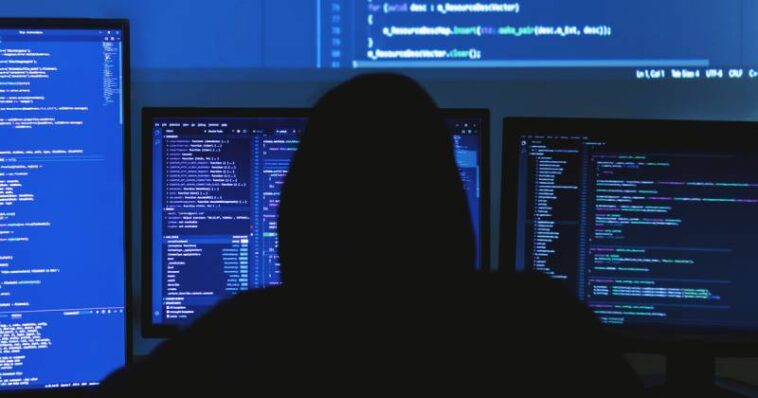
Using a VPN (Virtual Private Network) is a great way to hide your geographical location and browser history. Using a VPN will also encrypt your data so that it’s virtually impossible to hack.
VPN encryptions are so strong that it’s nearly impossible to crack
Using a VPN is a great way to protect yourself online. You can hide your IP address, prevent ISP tracking and repression, and protect yourself from discrimination.
Some VPNs use AES-256 bit encryption, which makes them nearly impossible to crack. This encryption method is used by the best VPN providers. If a VPN is hacked, the data will be useless, unless you have a private key to decrypt it. This type of encryption ensures that your data is protected, and there are more than a billion possible combinations.
Using a VPN may also help protect you from identity theft. This is because the thief won’t be able to read your PII, which is anything that can be used to track your identity. The theft of your identity can have a serious emotional and financial impact on you.
It’s also important to use strong passwords. If you use a simple password, the thief may be able to guess it using a dictionary attack. It’s also a good idea to delete tracking cookies from your browser. Some sites need to have cookies to function properly, but deleting them can reduce the risk of a hacker identifying you.
You should also use certificate-based authentication, which helps verify your identity. You will need to have a 2FA device in order to use this feature. You can also use a private browser if you want to avoid tracking.
Using a VPN may also reduce the risk of a Man-in-the-Middle attack. This type of attack intercepts traffic between two computers, and it is extremely difficult to detect.
The NSA and other government agencies are part of a PRISM project, which is an effort to monitor and collect internet traffic. Some countries, such as the United States, have adopted strict censorship policies. These policies often ban certain websites and services for ideological reasons.
VPN platforms can detect that you’re using an alternate IP address
Using a VPN may allow you to bypass censorship and unblock certain websites. Many VPN services use obfuscated servers to avoid censorship, as well as a cloaking protocol to make the most of your network traffic.
Using the right protocol can make a huge difference to your security. A secure tunneling protocol like WireGuard is likely to provide the most secure connection, while a more ad-hoc connection could be slower.
The best VPN services provide strong security features, such as 256-bit AES encryption. Some also support alternative payment methods, such as cryptocurrencies. There are even VPN apps for iOS, Linux and macOS. A 2-year subscription is likely to be the best deal.
Some VPN services include a kill switch, which shuts down the connection when the VPN isn’t working. This is especially important when using a public WiFi network. This can help prevent accidental IP address leaks.
The best VPNs will also offer the feature of port forwarding. Port forwarding reroutes your traffic to a different port to bypass the blocking of certain ports. For example, most websites will accept HTTP traffic on port 80 and HTTPS traffic on port 443. However, some websites or entities will block these ports, preventing legitimate users from accessing their websites or services.
Some VPN services also include a custom ad blocker. If your company doesn’t provide one, a free browser extension will help.
The best VPNs also offer a variety of server locations, allowing you to log on to a less congested part of the world. Some also offer split tunneling, which allows you to use your secure VPN connection to access only specific websites. This may be particularly useful if you want to avoid censorship in certain countries.
VPN can hide your geographical location
Using a VPN is a great way to hide your geographical location. If you have a VPN, you will be able to surf the internet as if you were in another country. The only people who know you are using a VPN are those who are observing your activities, such as your ISP or a government.
Your IP address can be used by your ISP and advertisers to track your browsing activity. You can even be tracked by cybercriminals.
Most web services rely on your IP address to identify you. However, if you are using a VPN, you are able to hide your geographical location from your ISP. Using a VPN also helps you to access services that are not available in your country. For instance, you may be able to access UK-only Netflix content if you are in the United States.
Most VPN services do not store any logs of user activity. They also provide encryption to keep your data and browsing activities hidden.
Some VPN services provide an ad blocker browser extension to keep third-party tracking at bay. However, you can also opt to disable geolocation in your browser. Some apps also track users based on their physical GPS location. You can disable geolocation on your Google Chrome browser by clicking the Ask button before accessing.
The IP address identifies you down to the latitude and longitude of your physical location. This is important because it can be used by your ISP or advertisers to track you.
Many VPNs provide you with a different IP address each time you connect. You can even choose to use a VPN from a different country. This is useful if you are traveling abroad and want to access online services that are blocked in your home country.
VPN can block your browser history
Using a VPN (virtual private network) can hide your browsing history from your ISP (Internet Service Provider). It can also encrypt all the internet traffic you send and receive. Using a VPN also hides your IP address from sites that can track you.
In addition to tracking your browsing habits, websites can also use cookies to identify you. A cookie is a small file that is downloaded to your computer when you visit a website. These cookies can then be used to identify you and remember your preferences.
Websites and advertising networks can also collect information about you. These entities can then use that information to target you with personalized advertising.
Google also collects your search history. It can then use sophisticated algorithms to identify you. It also can use your device type and screen resolution to determine where you are located.
Google also links your search history with your account. If you don’t have an IP address, Google will still see your searches and link them to your account. It is not possible for a VPN to hide your search history from Google.
However, a VPN can hide your browsing activity from others. It can also block malicious domains and web services. It can also change your location to a country where it’s more difficult for hackers to attack you. Using a VPN can also protect your online identity, but it won’t protect you from malware infections.
If you’re using a VPN on your computer, you need to be sure you’re using a “no logs” VPN provider. These providers are legally obligated to not spy on your search history.
It’s important to choose a VPN that has a clear privacy policy. Many popular apps have been called out for improper uses of user data.
VPN can’t block text messages
Having a virtual private network (VPN) is a rite of passage for many modern-day mobile workers. A VPN can bolster privacy by allowing you to hide your identity, encrypt your data, and even cloak your location from law enforcement and nosy neighbors. A VPN can also help you unblock your WiFi signal, allowing you to stream video to your heart’s content. A VPN can also be a useful tool in securing your online financial data. For example, many online banking apps use your credit card and password to access your account. Using a VPN in conjunction with your card can help protect you from these types of unscrupulous perpetrators.
While a VPN isn’t for everyone, it’s important to understand that there are pros and cons to be aware of. Using a VPN is a great way to keep your data safe and secure, but you’ll likely have to pay for a subscription. Thankfully, a VPN isn’t a one-size-fits-all proposition, and many companies provide you with a range of options. A good VPN provider will also ensure that you get the right fit for your mobile needs.



